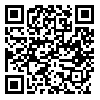BibTeX | RIS | EndNote | Medlars | ProCite | Reference Manager | RefWorks
Send citation to:
URL: http://ijme.mui.ac.ir/article-1-4150-en.html
Introduction: The need for English proficiency as an international language and the means to obtain new scientific information is highly felt. Undoubtedly, one of the most important factors affecting language learning is the teaching method. Hence, the purpose of this study was to explore the effects of traditional teaching, blended learning, and virtual education on students’ achievement and their attitudes in Jondishapoor University of Medical Sciences.
Methods: This quasi-experimental research examined the independent variable teaching methods (traditional teaching, blended learning and virtual education) and the two dependent variables academic achievement and attitude towards the approaches. 37 nursing students taking English course were randomly divided into three groups. A researcher-made 45-item questionnaire whose validity and reliability had been confirmed was used to measure attitude. Data were analyzed using ANOVA and post-hoc Tukey test.
Results: Results indicated that there were significant differences among the teaching methods in the achievement test scores in favor of blended learning. In addition, students’ attitudes towards the blended method was more positive compared to traditional and virtual methods (p<0.05).
Conclusion: Blended and virtual methods of teaching can be used to enhance student’s academic achievement in English learning.
Received: 2016/05/30 | Accepted: 2017/03/29 | Published: 2017/10/25 | ePublished: 2017/10/25
| Rights and permissions | |
 |
This work is licensed under a Creative Commons Attribution-NonCommercial 4.0 International License. |




